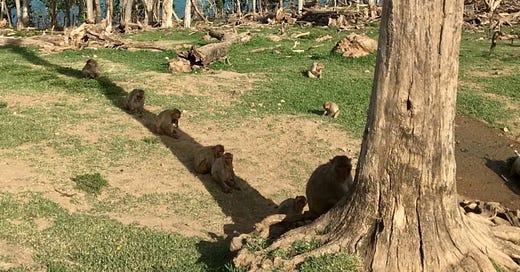Survival Through Sociability: How Hurricane Maria Changed the Behavior of Rhesus Macaques
Increased Tolerance and Resource Sharing Among Macaques Leads to Higher Survival Rates Post-Hurricane
In 2017, Hurricane Maria devastated Puerto Rico, wreaking havoc on human populations and natural habitats alike. One notable area affected was Cayo Santiago, a small island home to hundreds of rhesus macaques (Macaca mulatta). These macaques, known for their aggressive behavior, demonstrated an unexpected shift in social dynamics post-disaster, leading …
Keep reading with a 7-day free trial
Subscribe to Primatology.net to keep reading this post and get 7 days of free access to the full post archives.



